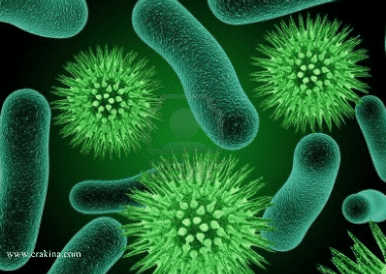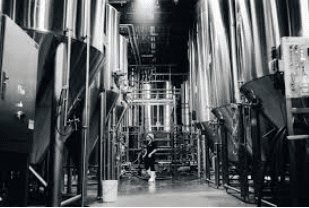Lactobacillus alvi bacteria belong to the species of Lactobacillus found in the gastrointestinal tract (GI) of chickens.
Lactobacillus species are majorly responsible for producing lactic acid and are one of the significant bacteria used as a probiotic. These bacteria are gram-positive and are utilised in probiotic fermented food supplements. Probiotics are good bacteria found in the gastrointestinal tract of humans. The primary function of these probiotic bacteria is to assist the gastrointestinal tract in digesting food, protect the walls of the gastrointestinal tract from harmful bacteria, and enhance the absorption of nutrients. Sometimes, the number of probiotic bacteria may be reduced due to a lack of probiotic intake from the food sources. Decreased good bacterias in the body will lead to autoimmune (thyroid, etc.) and digestive issues (constipation, etc.); therefore, probiotics are taken as supplements through diary products. Lactobacillus alvi is similar functioning bacteria; however, they are included in the gastrointestinal tract of chickens.
Brief description – Lactobacillus alvi
The Lactobacillus alvi bacteria are gram-positive, small rod-shaped bacteria. These species of bacteria are non-mobile, and they do not form spores for reproduction; however, they developed in both aerobic and anaerobic environments. The visual examination of the bacterial culture shows they are white colonies when grown under aerobic conditions. Temperature is one of the significant factors that affect the growth of these bacteria. Under medium temperatures (40°C), the growth rate of the Lactobacillus alvi bacterial colony is higher and survives longer compared to when grown under 37°C. The Lactobacillus alvi produces acid from different varieties of sugar components such as sucrose, ribose, maltose, etc., and non-acid substances from other biochemical components. Hence, this bacteria is heterofermentative and produces lactic acid from glucose and other biochemical constituents.
Functions and Significance
Lactobacillus species are used in probiotics as a good bacteria to maintain the gastrointestinal tract of humans. Species such as Lactobacillus johnsonii, L. gallinarum, etc., have been found in the gastrointestinal tract of animals, especially in chickens. Although there have been only a few researches about the Lactobacillus alvi species of bacteria, therefore there is not much known regarding the details of this particular Lactobacillus species.
Lactobacillus alvi bacteria has been mainly found in the chickens’ upper gastrointestinal tract and other Lactobacillus species. Additionally, the lactobacillus species are also given as a supplementary to the chickens to increase their resistance to infections. However, the efficiency of colonisation of this bacteria in the gastrointestinal tract of chickens is minimal. Therefore, the in-vivo supplementary provided to the chicken may not be effective as an anti-infection agent. Research has been conducted to determine the effect of Lactobacillus alvi in chicken to reduce the colonisation of Salmonella species (mainly Salmonella enteritidis). However, the studies have shown no effect from the L. alvi on resisting the S. enteritidis. Instead, when the chicken food was fermented with L. alvi, the S. enteritidis was observed to be inactive. Thereby, bacteria S. enteritidis was found to be negative in the fed chickens.
Experiments conducted in-vitro showed due to the acidification of the feed to pH4.6 caused by fermentation of lactobacillus was associated causing the inactivation of S. enteritidis. Therefore, the probiotic effect was activated when the feed was given to the chicken in-vitro, in contrast to the in-vivo experimentation of giving probiotics to the chicken directly, which did not affect the Salmonella enteritidis.
Lactobacillus alvi species is provided to the poultry industry commercially as a probiotic to improve poultry production. Treating the poultry with lactobacillus fermented foods will enhance the quality of the poultry products, such as weight, egg size, and other enteric diseases. Therefore, these poultry products can be deemed safe for consumption by humans.









